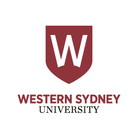Graduate Diploma in Health Science
- Posted by Western Sydney University
- Home
- Courses
- Western Sydney University
- Graduate Diploma in Health Science
Graduate Diploma in Health Science
The Graduate Diploma in Health Science provides students with an opportunity to delve deeper into issues relevant to the Australian healthcare system as well as international models of healthcare. It explores the socioeconomic, behavioral, biological and societal determinants of health and disease, providing a sound knowledge in epidemiology and the…
Categories
COURSE DESCRIPTION
The Graduate Diploma in Health Science provides students with an opportunity to delve deeper into issues relevant to the Australian healthcare system as well as international models of healthcare. It explores the socioeconomic, behavioral, biological and societal determinants of health and disease, providing a sound knowledge in epidemiology and the use of healthcare data for decision-making. It provides an entry point to the Master of Health Science for those who wish to continue on their professional development journey with further studies.
This course includes work integrated learning opportunities that involve using the workplace and community as a site and as a source for learning. Work integrated learning partners include various Local Health Districts, hospitals, aged care providers, and other health service providers found within the community. Two units will be focused on work integrated learning, one using workplaces and communities as sources for learning through project-based learning, and the other using the workplace and community as a site for learning.
In addition to three core units, you will complete five electives from a wide range of fields of study including, but not limited to, Communicable Diseases, Health Workforce Planning, Building Organisational Capacity in Health Care, and Surveillance and Disaster Planning.
Your career
As a health science graduate, you can look forward to career opportunities in:
Health services management
Aged care management
Health planning
International health
Health promotion
Occupational health and safety
Occupational and environmental hygiene
Research studies
REQUIREMENTS
Applicants must have either
An undergraduate or higher degree in a relevant health-related discipline,
Or
A graduate diploma or graduate certificate in any discipline and two years full-time equivalent work experience in a relevant health-related discipline.
Applicants seeking admission on the basis of work experience must support their application with a Statement of Service for all work experience listed on the application.
English Language Requirements:
IELTS: 6.5 overall score (min 6.0 in each subtest); TOEFL internet-based score of 82: Writing 21, Speaking 18, Reading 13, Listening 13; Pearson Test of English Academic (PTE): 58 overall; No communication skills less than 50.
EDUCATIONAL INSTITUTION
Western Sydney University is located in New South Wales and operates out of 13 accessible campuses across Sydney (Bankstown, Liverpool City, Campbelltown, Sydney City, Sydney Olympic Park, Parramatta, Parramatta City, Westmead, Penrith and Hawkesbury). The student body numbers more than 35,000. With a mix of modern high rise and heritage buildings, equipped with technology-enabled learning facilities, libraries, research facilities, and studios, the University covers a wide range of academic programs including the School of Business, School of Computer, Data and Mathematical Sciences, School of Education, School of Engineering, Design and Built Environment, School of Health Sciences, School of Humanities and Communication Arts, School of Law, School of Medicine, School of Nursing and Midwifery, School of Psychology, School of Science, School of Social Sciences and the Graduate Research School.
Western Sydney University is located in New South Wales and operates out of 13 accessible campuses across Sydney (Bankstown, Liverpool City, Campbelltown, Sydney City, Sydney Olympic Park, Parramatta, Parramatta City, Westmead, Penrith and Hawkesbury). The student body numbers more than 35,000. With a mix of modern high rise and heritage buildings, equipped with technology-enabled learning facilities, libraries, research facilities, and studios, the University covers a wide range of academic programs including the School of Business, School of Computer, Data and Mathematical Sciences, School of Education, School of Engineering, Design and Built Environment, School of Health Sciences, School of Humanities and Communication Arts, School of Law, School of Medicine, School of Nursing and Midwifery, School of Psychology, School of Science, School of Social Sciences and the Graduate Research School.




